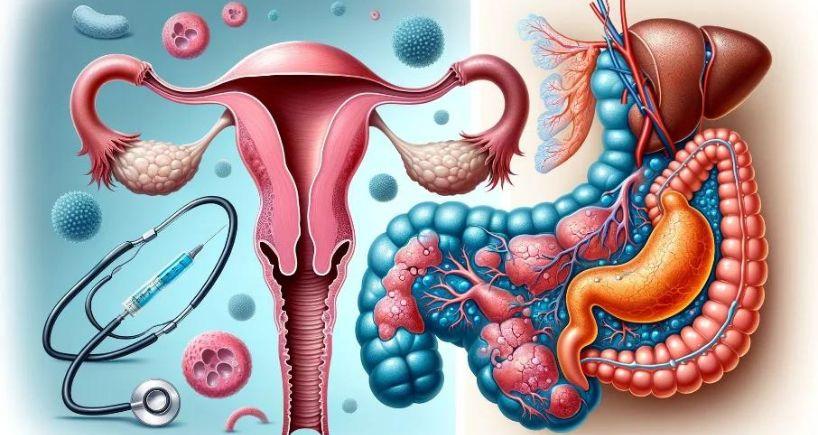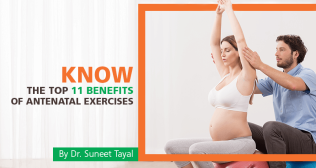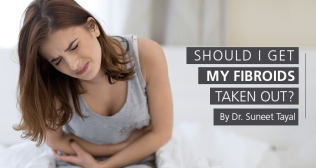
Understanding Endometriosis: Causes, Symptoms, and Treatments
Endometriosis is a condition where the tissue that typically lines the inside of the uterus, known as the endometrium, starts to grow outside the uterus. Common sites for these misplaced tissues include the ovaries, the back of the uterus, and various parts of the pelvis. The pelvis is the lower part of the abdomen, housing the uterus, urinary bladder, and rectum.
What Happens in Endometriosis?
During each menstrual cycle, the endometrial tissue thickens, breaks down, and bleeds. Normally, this bleeding exits the body through menstruation. However, in endometriosis, the displaced tissue has no way to leave the body, causing internal bleeding that accumulates with each menstrual cycle.
Symptoms and Complications
Women with endometriosis often experience severe pain, especially during their menstrual periods or intercourse. If the tissue is lodged behind the uterus or on the rectum, it can cause a constant, painful urge to pass stools during periods and severe backache. When the tissue is on the ovaries, it can lead to the formation of chocolate cysts, which are cysts filled with old blood, giving them a dark brown appearance. These cysts can impair fertility by blocking the fallopian tubes or trapping released eggs.
The Causes and Mechanisms
The exact cause of endometriosis remains unclear. Several theories suggest genetic predisposition, stress, and autoimmune factors as potential contributors. Due to the lack of a definitive cause, healthcare providers emphasize the importance of a healthy lifestyle, including a balanced diet, regular exercise, and stress management.
Treatment Options
1.Medications
Medications aim to reduce or eliminate bleeding from the displaced endometrial tissue. While they can provide temporary relief, the symptoms often recur once the medication is stopped.
2.Surgery
Surgical intervention is generally reserved for emergency situations, such as when the pain is unmanageable with medications or when large chocolate cysts hinder a woman's ability to conceive. Despite advancements in surgical techniques, there is a high recurrence rate of endometriosis.
3.Natural Solutions
The natural resolution for endometriosis typically occurs at menopause when the ovaries stop producing hormones that stimulate endometrial growth. Pregnancy can also temporarily suppress the condition. Medications that induce a no-period state can significantly alleviate pain associated with endometriosis.
4.Lifestyle and Education
Given the recurrent nature of endometriosis, it's crucial for affected women to maintain good health through diet, exercise, and stress reduction. Education about the disease and its management is essential for improving quality of life.
Support at Fortis Hospitals, Bannerghatta Road
At Fortis Hospitals, Bannerghatta Road, we are committed to supporting women with endometriosis. We conduct awareness sessions and health talks, providing valuable information and resources for managing this condition. Our aim is to offer comprehensive care and support to help women lead healthier, pain-free lives despite the challenges of endometriosis.
By understanding endometriosis and its implications, women can take proactive steps to manage their symptoms and improve their overall well-being.
Popular Searches :
Hospitals: Cancer Hospital in Delhi | Best Heart Hospital in Delhi | Hospital in Amritsar | Hospital in Ludhiana | Hospitals in Mohali | Hospital in Faridabad | Hospitals in Gurgaon | Best Hospital in Jaipur | Hospitals in Greater Noida | Hospitals in Noida | Best Kidney Hospital in Kolkata | Best Hospital in Kolkata | Hospitals in Rajajinagar Bangalore | Hospitals in Richmond Road Bangalore | Hospitals in Nagarbhavi Bangalore | Hospital in Kalyan West | Hospitals in Mulund | Best Hospital in India | | Cardiology Hospital in India | Best Cancer Hospital in India | Best Cardiology Hospital in India | Best Oncology Hospital In India | Best Cancer Hospital in Delhi | Best Liver Transplant Hospital in India
Doctors: Dr. Rana Patir | Dr. Rajesh Benny | Dr. Rahul Bhargava | Dr. Jayant Arora | Dr. Anoop Misra | Dr. Manu Tiwari | Dr. Praveer Agarwal | Dr. Arup Ratan Dutta | Dr. Meenakshi Ahuja | Dr. Anoop Jhurani | Dr. Shivaji Basu | Dr. Subhash Jangid | Dr. Atul Mathur | Dr. Gurinder Bedi | Dr. Monika Wadhawan | Dr. Debasis Datta | Dr. Shrinivas Narayan | Dr. Praveen Gupta | Dr. Nitin Jha | Dr. Raghu Nagaraj | Dr. Ashok Seth | Dr. Sandeep Vaishya | Dr. Atul Mishra | Dr. Z S Meharwal | Dr. Ajay Bhalla | Dr. Atul Kumar Mittal | Dr. Arvind Kumar Khurana | Dr. Narayan Hulse | Dr. Samir Parikh | Dr. Amit Javed | Dr. Narayan Banerjee | Dr. Bimlesh Dhar Pandey | Dr. Arghya Chattopadhyay | Dr. G.R. Vijay Kumar | Dr Ashok Gupta | Dr. Gourdas Choudhuri | Dr. Sushrut Singh | Dr. N.C. Krishnamani | Dr. Atampreet Singh | Dr. Vivek Jawali | Dr. Sanjeev Gulati | Dr. Amite Pankaj Aggarwal | Dr. Ajay Kaul | Dr. Sunita Varma | Dr. Manoj Kumar Goel | Dr. R Muralidharan | Dr. Sushmita Roychowdhury | Dr. T.S. MAHANT | Dr. UDIPTA RAY | Dr. Aparna Jaswal | Dr. Ravul Jindal | Dr. Savyasachi Saxena | Dr. Ajay Kumar Kriplani | Dr. Nitesh Rohatgi | Dr. Anupam Jindal |
Specialties: Heart Lung Transplant | Orthopedic | Cardiology Interventional | Obstetrics & Gynaecology | Onco Radiation | Neurosurgery | Interventional Cardiology | Gastroenterologist in Jaipur | Neuro Physician | Gynecologist in Kolkata | Best Neurologist in India | Liver Transfer



















